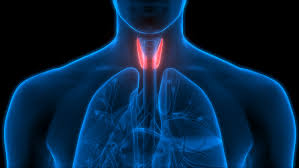Celiac disease, also known as gluten-sensitive enteropathy or celiac spruce, is an autoimmune disease that is caused by eating gluten. Gluten is a protein founds in various food items including barley, rye, and wheat.
If you’re suffering from celiac disease, an immune response can be triggered in your small intestine after eating gluten. Over time, the reaction damaged the lining of the small intestine, which further stops it from absorbing important nutrients, which is called malabsorption. This intestinal damage can also cause diarrhea, weight loss, fatigue, anemia, bloating, and some other severe health complications.
In children, malabsorption can impact their development and growth, in addition to the celiac disease symptoms found in adults. Importantly, no proper cure has been found for celiac disease. However, for most people, having a gluten-free diet can be helpful in managing symptoms and promoting intestinal healing.
Symptoms of Celiac Disease
The symptoms and signs of celiac disease can be different in adults and children and can vary from person to person.
Some symptoms of celiac disease usually observed in adults are:
- Fatigue
- Diarrhea
- Weight loss
- Abdominal pain
- Bloating and gas
- Constipation
- Nausea and vomiting
However, some adults also experience symptoms that are not related to the digestive system. Some of the symptoms unrelated to the digestive tract are:
- Anemia, mainly iron-deficiency anemia
- Softening of bone (osteomalacia)
- Loss of bone density (osteoporosis)
- Blistery, itchy skin rash (dermatitis herpetiformis)
- Headaches
- Fatigue
- Mouth ulcers
- Nervous system injuries
- Cognitive impairment
- Joint pain
- Declined functioning of the spleen (hyposplenism)
As far as symptoms in children are concerned, children are more likely to experience the digestive problem as a result of celiac disease. Some of them are:
- Chronic diarrhea
- Nausea and vomiting
- Constipation
- Swollen belly
- Gas
- Pale and foul-spelling stools
The small intestine’s inability to absorb useful nutrients may lead to the following things:
- Delayed growth
- Damaged tooth enamel
- Anemia
- Weight loss
- Irritability
- Delayed puberty
- Short stature
- Learning disabilities
- Headaches
- Lack of muscle coordination
- Seizures
- ADHD
When to Consult a doctor
You should immediately seek celiac disease treatment if you have digestive discomfort or diarrhea that has lasted for two weeks or more. Consult a child’s specialist if your child is irritable, pale, failing to grow, or has bulky, foul-smelling stools.
Moreover, make sure to consult a doctor before you go on a gluten-free diet. If you stop consuming gluten or reduce the intake before you get tested for celiac disease, it can change the results of the celiac disease test.
In addition to that, celiac tends to run in the family, celiac disease is likely to run in family. Hence, if your family has this condition, consult your doctor about getting tested. Consult your doctor if you should consider getting tested or if someone in your family can have a risk for celiac disease.
What Health Complications Does Celiac Disease Cause?
The untreated or undiagnosed celiac condition can lead to various long-term health conditions like:
- Early onset osteopenia or osteoporosis
- Gall bladder malfunction
- Heart disease
- Iron deficiency anemia
- Infertility and miscarriage
- Lactose intolerance
- Liver failure
- Malnutrition
- Pancreatic insufficiency
- Mineral and vitamin deficiency
- Small intestine cancer
- Non-Hodgkin lymphoma




